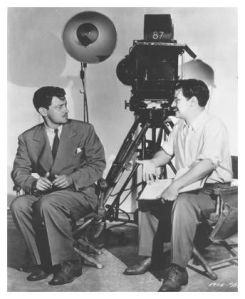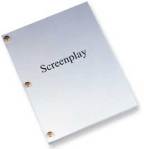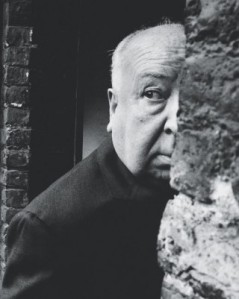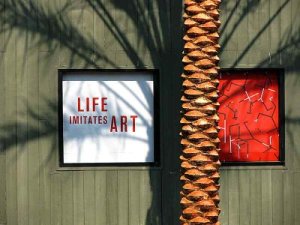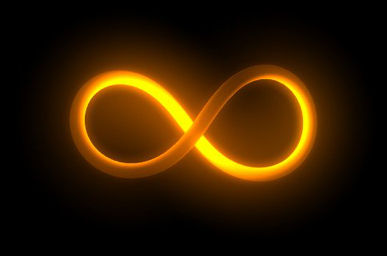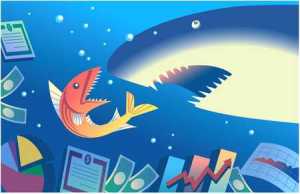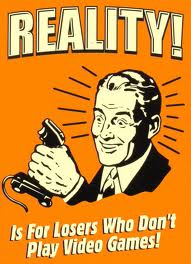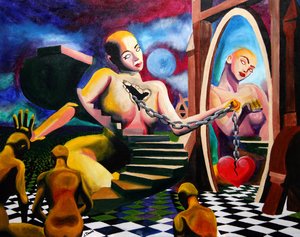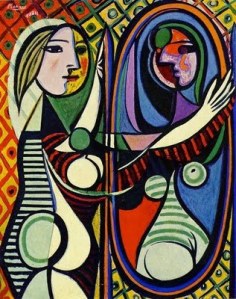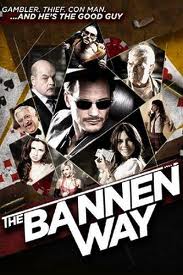We’re going to keep this chicken and egg debate between the Writer and the Director. Before you chime in with alternate answers like “The Producer”, or “The Advertisers” (both valid) I want you to think of your immediate impression of who is God in the world of film.
Now lets break it down…
The Case for the Writer…
He created the story. He gave life to something that didnt exist before. The world. The story within that world. The characters within that story. The words coming out of the characters’ mouths.
The writer created everything… the very definition of God.
Case closed, right?
The Case for The Director…
By definition, he directs the story. So doesn’t that “trump” the writer’s role as God?
The writer who believes himself God hates the director who alters a single word of their genius. But why should the writer be the only artist in the entire process who isn’t directed? In fact, the writer has no power over any other cast or crew member. So the Director is God.
Case closed, right?
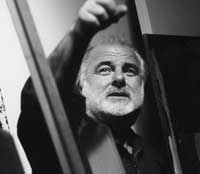 I am deeply grateful for all that I have learned from my former acting school, the Beverly Hills Playhouse (BHP) under the tutelage of the late great, Milton Katselas. One of the things he said regarding story-telling was
I am deeply grateful for all that I have learned from my former acting school, the Beverly Hills Playhouse (BHP) under the tutelage of the late great, Milton Katselas. One of the things he said regarding story-telling was
“The Writer is a genius until proven otherwise.”
This is important for actors as well as directors to keep in mind when interpreting the author’s work.
To take it a step further I had another BHP teacher tell me that a writer shouldn’t direct their own work. As someone who fancies himself a writer/director, I was understandably miffed at this proclamation.
Their perfect example cited was the film and play collaborations between Tennessee Williams and Elia Kazan on works such as “A Streetcar Named Desire”, “Camino Real”, “Cat on a Hot Tin Roof”, and “Sweet Bird of Youth”.
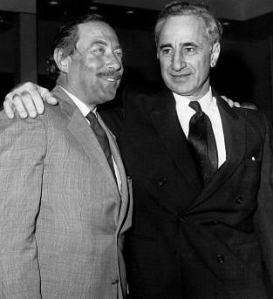 These brilliant pieces of artistry came from Williams slicing truth from life and Kazan using his own life experiences to personalize those truths, which inevitably evolved the writing. They are nothing without each other.
These brilliant pieces of artistry came from Williams slicing truth from life and Kazan using his own life experiences to personalize those truths, which inevitably evolved the writing. They are nothing without each other.
I would argue that Williams is the quintessential writer who doesn’t direct, while Kazan, one of the finest directors of last century, TRIED to write but couldn’t.
But where does that leave the writer/director…? The single visionary auteur who sees the entire picture in his head and uses the script simply as a means of translating that vision to the other collaborators on his film…?
As someone who values everyone from Woody Allen to Christopher Nolan, I had to find my own path.
It was clear my beloved Katselas (as an artist who studied under and assisted Kazan for so many years) favored the Director-as-God mentality. He was also the same man who brilliantly reworked “Romeo and Juliet”, arguably creating one of the greatest adaptations of Shakespeare ever. Katselas’ entire philosophy of instilling classic material with real flesh and blood beings with modern issues can be summed up with one line…
“Fuck Iambic Pentameter.”
To Katselas’ credit, and to every producer who loathes having an author on set, there are some screenwriters who think everything they write is gold and that an altered word could upset the very core of their genius construct.
When it comes to filmmaking, that writers needs to observe…
The 3 Phases of Story-telling
PHASE 1: Script
This is where the Writer has creative reign to play God and invent the story he wants to tell. At this point, everything the writer creates IS Gold…
(until he shows the script to a producer of course.)
This is the point when actors step in front of the camera and breathe life into words that formerly only existed on a page; all of which is orchestrated by the Director.
It is immediately before this stage when the writer is often abandoned by the Studio, left at home wondering how fresh the on-set Red Vines must taste. This is probably due to the disgruntled purist writers who have complained over the decades about their words being altered. They may have real merit to complain about in some cases but, then again, they may not understand the magic that can happen when real actors get on set.
This is where you have the ability to re-imagine everything you did up to this point and transform it into a comedy or horror, fast-cut or slow-paced, etc.
This is the final stage where both writer and director can be at fault for falling in love with their work in one or both of the previous phases and deny the ability to tell an evolved story.
Hitchcock vs Coppola
Hitchcock was credited as previsualizing his stories to such a degree that he would actually look through the lens, call action and walk away, assuming his storyboards would communicate everything the cast and crew needed to know at that point.
I’m guessing this reputation was over-simplified, but the point was that he certainly didn’t need some writer to be giving him suggestions along the way; Hitchcock already had everything in his head and communicated via storyboards.
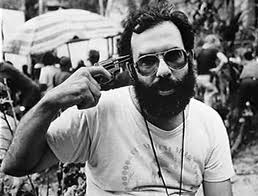 But then there’s Coppolla who sees every moment as a collaboration and is rewriting scenes on the hood of a car moments before shooting.
But then there’s Coppolla who sees every moment as a collaboration and is rewriting scenes on the hood of a car moments before shooting.
From what I’ve heard he, to a large degree, had a “we’ll figure it out when we get there” mentality, which I also assume was somewhat exaggerated.
Regardless, I think the ideal scenario is a combination of these two methodologies; where the writer and director become one being… the way I imagine Kazan and Williams worked on a film.
Lets assume… you are a director (not the writer/director) and lets also assume the writer is still alive to collaborate with.
The Ideal Writer/Director scenario

PRE-PRO
a) Writer completes their version of script.
b) Director comes on board, interpreting what writer intended, while personalizing the story from his own perspective.
c) Writer AND director rework script together, to tell this “new story” combining writer’s original intentions with director’s personal experiences. (Hopefully, if the writer found the right director, these stories will not be “different”- yet “evolved”.)
PRODUCTION
d) Director works with EVERY CREATIVE ENTITY on set to make sure they understand the vision of the project set out by him and the writer.
While shooting, the beast of the story can/will change. The Director is trained to roll with these changes. The writer should be ready to rewrite anything that can strengthen this new interpretation.
Arguably the most important elements other than Director and Writer are the actors and the DP, mostly because they all have to be aware of every potential moment when “magic” could be happening.
POST-PROD
e) The Director should closely collaborate with the editor. At this point the writer is done, unless the director needs clarification; but hopefully he knows the story so intimately, as well as the footage captured on film, that his job just becomes translating that to the editor.
Lets face it- the real God is the story.
In its purest form the story should be inevitable, a perfect mirror of our lives. Art imitating life, imitating art, imitating life.
The writer (hopefully) saw something illuminating to our lives and captured it with words. And the director (hopefully) understood the writer’s intentions and used their own understanding of life to see it all the way to the hearts of the audience.
But then again…
The best art makes artists out of those who interpret it.
When we, as viewers, watch art we’re seeing a representation of ourselves. Its our job to constantly redefine what life is… which gives filmmakers fodder to create.
So maybe God… is us.
~ JW

